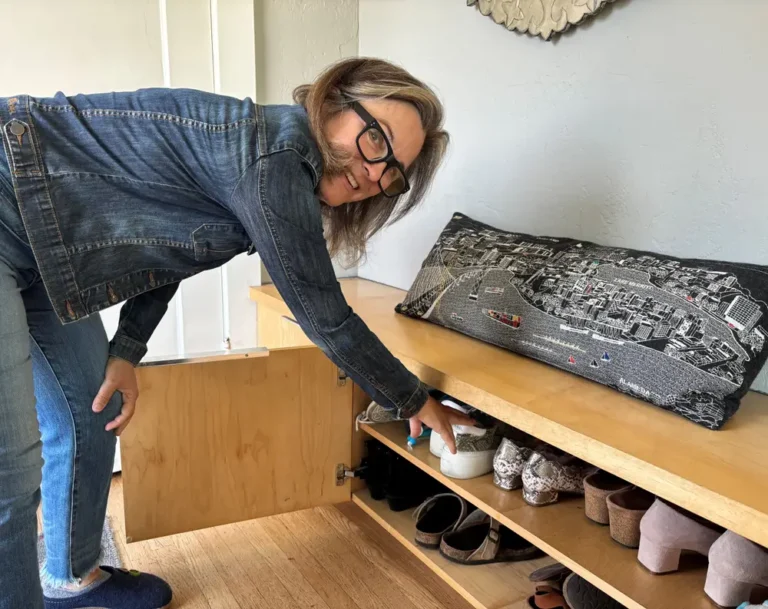The CEO of Best Buy’s home-healthcare unit shares how a new tech strategy will help grow the business

- Best Buy’s home-health business wants to build automation tech to simplify hospital-at-home care.
- Hospitals usually have to manually get everything from meals to X-ray machines into patient homes.
- Current Health’s tech could make life easier for clinicians, its CEO said.
Since 2018, Best Buy has been delving into healthcare, focusing on virtual care and home health.
As part of that push, the electronics retailer paid $400 million for Current Health in 2021. Current Health’s remote-monitoring platform, which includes tools such as video visits and wearables, assists clinicians in providing home care to patients who would otherwise be hospitalized.
Best Buy sends its own team to set up Current Health’s devices in patients’ homes, much like the company would assemble a stereo system or mount a TV.
Current Health now wants to use technology to make it easier to transition patients from hospitals to their homes, a time-consuming and manual process. Typically, providers must write prescriptions and fill out forms for each piece of equipment or service that a patient requires to receive care at home — everything from hospital beds to X-ray machines and infusion pumps — and then enter all of that information into the patient’s electronic medical record.
Current Health CEO Christopher McGhee told Insider last month that the company wanted to use technology to better connect third-party companies involved in at-home care, such as medical-device makers, and to simplify administrative tasks for home-health clinicians. McGhee was recently named to Insider’s annual list of healthcare’s top young leaders.
“We see it as crucial to scaling the hospital-at-home space overall right now,” he said. “If you’re a doctor or a hospitalist, it’s too complicated right now to admit someone to a hospital-at-home program instead of putting them on the hospital floor.” We believe we can greatly simplify that, and it is a major focus for us.”
McGhee stated that Current Health is thinking about developing its own automation technology or partnering with another company to automate key parts of the home-health supply chain.
Despite falling retail sales, Best Buy is continuing to invest in its healthcare business. The electronics retailer hasn’t revealed much about its healthcare segment’s performance in comparison to the rest of the business, but its chief financial officer, Matt Bilunas, did say during the company’s earnings call in August that Best Buy’s healthcare business had improved the company’s total profit margins in the previous quarter.
Connecting the home-health supply chain
Currently, health systems that want to discharge patients from the hospital must plan how to get everything from medical equipment to meals into the patients’ homes. According to McGhee, this can be time-consuming and burdensome for providers.
Current Health assists hospitals in manually connecting with third-party providers of at-home care equipment and services, and ensures that all orders are recorded in the patient’s electronic medical record.
Current Health, according to McGhee, is figuring out how to automate that process to relieve clinicians of those tasks in health systems, a top priority as the healthcare-staffing crisis worsens and clinician burnout rises.
It’s also thinking about how to design that technology to provide the best experience for patients, because moving care into the home can be overwhelming for patients as well, according to McGhee.
“We want to make sure we’re not sending 20 different people to the home and the consumer has no idea who’s coming and who they work for,” he explained. “It needs to be under one brand and easily understood by the consumer so that they feel in control of who’s coming into their home and when.”
Partnering with more health systems
McGhee believes that designing technology to support at-home care is especially important as the home-health market expands.
In 2022, Current Health had its best commercial year. McGhee stated that the company’s business has been driven by patients’ increasing preference for at-home care and expanded insurance coverage for at-home care, including Medicare and Medicaid coverage.
Best Buy told Insider last month that it has partnerships with more than 50 healthcare organizations worldwide, including five of the top twenty health systems in the United States. McGhee stated that Current Health intends to announce additional health-system partnerships in the coming months.
Best Buy, according to McGhee, wants to support patients throughout the entire continuum of care without actually providing medical care.
“Best Buy is never going to be a clinical health provider,” he asserted. “Best Buy is there as an enabler, the plumbing that allows home care to happen.”






